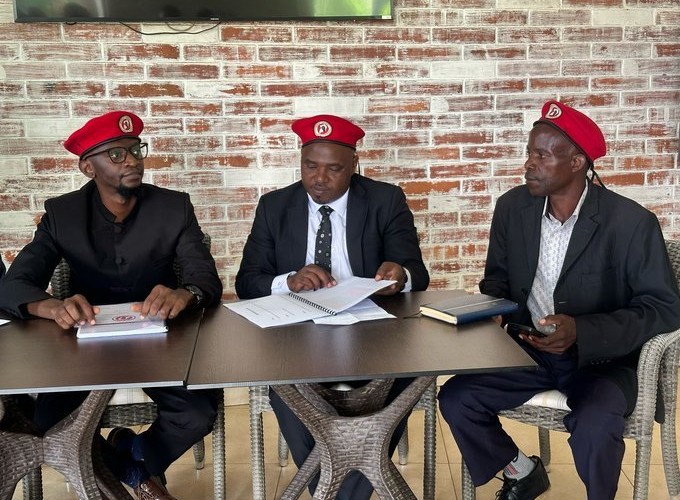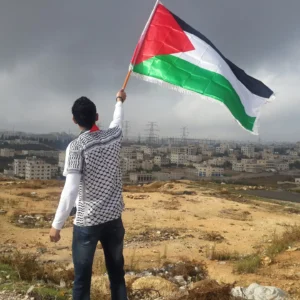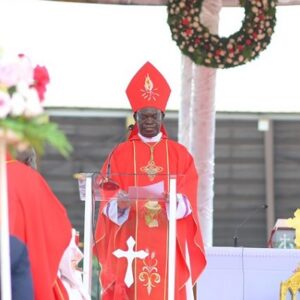Robert Kyagulanyi, better known as Bobi Wine and the leader of the National Unity Platform (NUP), has issued a searing open letter addressed to elders and leaders in Uganda’s Ankole and Kigezi sub-regions. In the letter, dated May 6 and shared publicly on May 8 via social media, Kyagulanyi implores these influential figures to distance themselves from what he terms the “barbaric” acts of President Yoweri Museveni and his son, General Muhoozi Kainerugaba.
The letter has ignited nationwide debate, further intensifying political tensions as Uganda prepares for the 2026 general elections.
Allegations of Torture and Tribalism
Kyagulanyi’s three-page letter is addressed to key regional figures, including Hon. Matthew Rukikaire Mugisha, Hon. Amanya Mushega, and retired Chief Justice Bart Magunda Katureebe, as well as local bishops and district chairpersons. In it, he accuses President Museveni and Gen. Muhoozi of orchestrating grave human rights abuses, including abductions, torture, and ethnic discrimination.
At the heart of Kyagulanyi’s letter is the recent alleged abduction and torture of his chief bodyguard, Edward Sebuufu, widely known as Eddie Mutwe. According to Kyagulanyi, Mutwe was kidnapped on April 27 in Kiwango by men in both military and civilian attire. He was reportedly held incommunicado for several days and appeared before the Masaka Magistrate’s Court on May 4, visibly injured and unable to walk unassisted.
Kyagulanyi visited him at Masaka Main Prison on May 7 and described the extent of his suffering. In a social media post, he alleged that Mutwe had been electrocuted, waterboarded, and beaten daily. He also claimed that Gen. Muhoozi personally participated in the abuse, mocking Mutwe’s inability to speak Runyankore and coercing him to pledge allegiance to Museveni on camera.
Kyagulanyi further alleged that Muhoozi boasted about these abuses on social media, including sharing a photo of a half-naked, clean-shaven Mutwe, while threatening more violence. He portrayed these acts as part of a broader campaign to incite tribal divisions—particularly targeting the Baganda community—by forcing victims to sing Buganda’s anthem while replacing the Kabaka’s name with Museveni’s.
A Plea to Elders for Moral Clarity
Kyagulanyi’s appeal is clear: he is asking elders in Ankole and Kigezi—regions long seen as strongholds of Museveni’s support—to publicly condemn what he sees as increasing lawlessness and impunity.
“It falls on you, as the elders of Ankole and Kigezi, to disassociate yourselves from this barbaric, reckless impunity and caution Gen. Museveni and his brutal son,” Kyagulanyi writes. He warns that silence could pave the way to national catastrophe, invoking historical instances where unchecked hate and pride led to genocide.
He also criticizes what he calls systemic inequality under Museveni’s leadership, pointing to government statistics that reflect regional imbalances and injustices worsened by abductions and torture.
Mixed Public and Political Reactions
The letter has sparked intense reaction online and in political circles. Many of Kyagulanyi’s supporters echoed his call for justice, urging Ankole and Kigezi elders to take a moral stand.
However, critics were quick to push back. Some pointed out Kyagulanyi’s own alleged history of divisive rhetoric. For instance, political commentator Sarah Nantongo questioned whether Kyagulanyi had ever apologized for referring to some Baganda Museveni supporters as “stupid,” accusing him of inflaming the same tribal tensions he now condemns.
Another critic, Brian Wanyama, argued that Kyagulanyi’s political strategy relies heavily on tribal loyalty within Buganda, raising doubts about the sincerity of his broader unification message. Emmanuel Dombo, a prominent political analyst, advised Kyagulanyi to pursue formal channels—such as the Commander-in-Chief or Ministry of Defence—instead of appealing to regional elders. Meanwhile, Frank Mwesigye harshly criticized Kyagulanyi for not addressing his own alleged tribal biases before accusing others.
Backdrop of Political Repression
Kyagulanyi’s letter comes amid growing concerns about political repression in Uganda. President Museveni, in power since 1986, has frequently been accused of targeting political opponents. Human rights groups have documented widespread abuses, including arbitrary arrests and torture.
The case of Eddie Mutwe has drawn particular attention. On May 6, Uganda’s Justice Minister Norbert Mao confirmed that Mutwe appeared in court “visibly weak and showing signs of torture.” Despite an earlier release order from the Uganda Human Rights Commission on May 3, Mutwe remains in custody on robbery charges that his lawyer, Magellan Kazibwe, insists are fabricated.
General Muhoozi, now Chief of Defence Forces, continues to stir controversy through provocative social media posts. In the past, he has threatened to behead Kyagulanyi, joked about invading Kenya, and recently admitted to detaining Mutwe in his “basement.” His rising public profile has fueled speculation about a political succession plan—something President Museveni has repeatedly denied.
Regional Divisions and Political Stakes
Kyagulanyi’s message also taps into long-standing regional disparities in Uganda. A 2009 Guardian article noted that Museveni’s rule has favored western and central regions while marginalizing the north and east—a trend that continues to shape Uganda’s political dynamics.
By calling on Ankole and Kigezi elders to speak out, Kyagulanyi is attempting to hold Museveni’s traditional base accountable and challenge the normalization of violence. However, some fear that this approach could further polarize an already divided nation.
As Uganda moves closer to the 2026 elections, the political landscape remains volatile. Kyagulanyi positions himself as a champion of a “free, united, and prosperous Uganda,” but his methods and rhetoric continue to draw both support and criticism.
For now, his open letter has placed the plight of Eddie Mutwe and the broader issue of political repression at the forefront of national discourse. The response-or lack thereof—from elders in Ankole and Kigezi may prove crucial in determining the country’s path forward.







